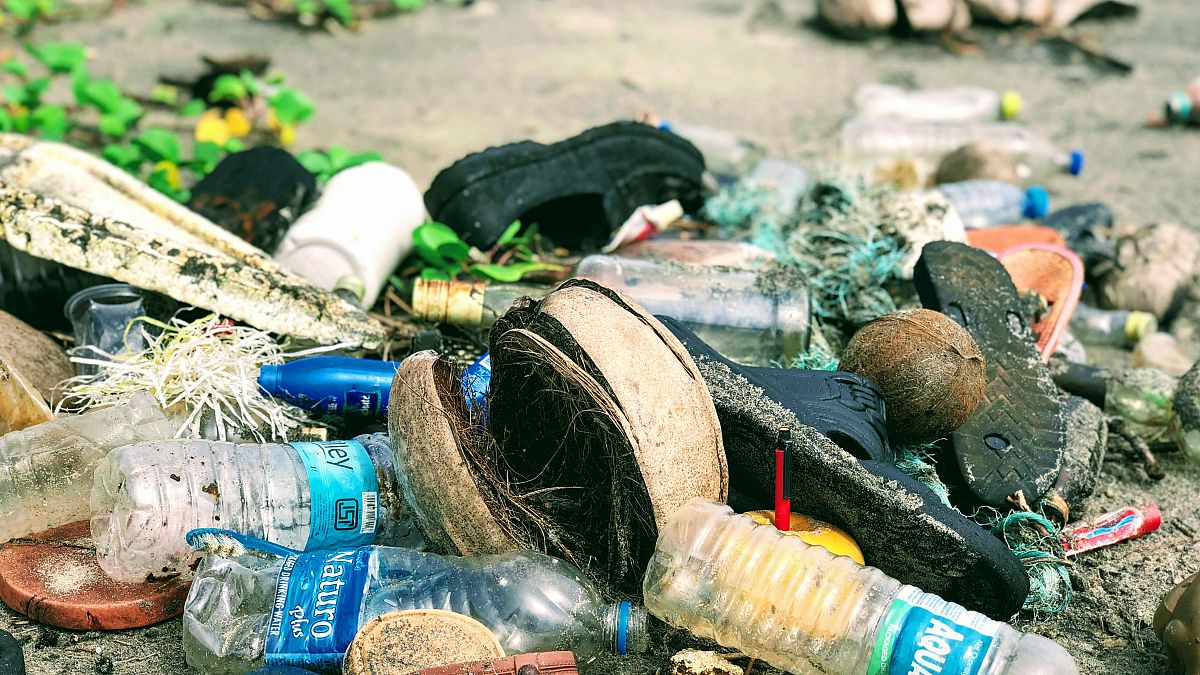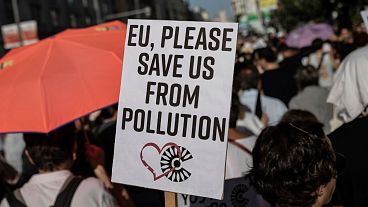22,000 people were asked about their feelings on the environment - and if enough is being done to protect it - and the results make for fascinating reading.
A new study has discovered that a majority of people believe causing serious damage to nature and the climate should be a criminal offence.
The Ipsos survey, commissioned by Earth4All and the Global Commons Alliance (GCA), interviewed 22,000 people across 22 countries, including in 18 G20 countries.
What was most stark was the revelation that many people have a deep-seated concern about the current state and future of planet earth.
As well as the 72 per cent who were found to agree that governments or leaders of large businesses who approve or permit actions which cause serious damage to nature and the climate should be criminally punished, 59 per cent said they are very or extremely worried about the state of nature today.
Shockingly, 69 per cent believe earth is close to climate and nature tipping points while the survey showed that 52 per cent feel very or somewhat exposed to climate and environmental risks, meaning it affects their lives on a daily basis.
Are men or women more worried about climate change?
The study was released following recent landmark legislative changes, both in Europe and further afield.
In Belgium, ecocide was recognised as a federal crime earlier this year.
Similar laws have been passed in France and Chile, too, and ecocide bills have been proposed in Scotland, the Netherlands, Brazil, Mexico and Peru, among others.
The survey categorised respondents from across the world, aged from 18 to 75, and found out people’s attitudes vary greatly from place to place and according to background.
It uncovered gender differences in environmental concern, with women tending to exhibit higher levels of worry about the state of nature today and for future generations than men.
62 per cent of women are extremely or very worried about the state of nature today, compared to 56 per cent of men.
Similarly, 74 per cent of women believe that major action to address environmental issues should be taken immediately within the next decade, compared with 68 per cent of men.
Just 25 per cent of women believe that many claims about environmental risks are exaggerated while some 33 per cent feel the same.
Women were also found to be significantly less likely to believe that technology can solve environmental problems without individuals having to make big lifestyle changes with 35 per cent and 44 per cent respectively.
Which other factors saw people’s attitudes vary to climate issues?
Regional differences in perceived exposure to climate change also played a part in the survey - and the results make for sobering reading.
People in emerging economies such as India, China, Indonesia, Kenya and Turkey feel significantly more personally exposed to climate change compared to those in Europe and the United States.
Those who perceive themselves as highly exposed to environmental and climate-related risks were revealed to have the highest levels of concern and urgency regarding climate action.
Going further than location and gender, the Ipsos survey segmented G20 respondents according to attitudes to planetary stewardship for the first time - and identified five distinct audience segments. These are:
- Planetary Stewards: This group is driven by a strong sense of urgency and responsibility towards the environment and advocates for systemic change, both political and economic, to address environmental challenges. They are characterised by particularly high levels of concern and activism, with 97 per cent saying there is an immediate need to tackle climate change.
Concerned Optimists: These people blend high environmental concern with optimism about the future. They were found to typically support immediate environmental action and are confident that addressing climate change can bring widespread benefits to people in their country - but, crucially, show optimism about the future.
Steady Progressives: This group is pragmatic and moderate in their approach, seeking balanced solutions to environmental issues. They tend to acknowledge the need for urgent action, but prefer gradual reforms within systems which already exist.
Climate Sceptics: These individuals dismiss climate and environmental concerns, tending to oppose policies which address climate change. They are more likely than average to prioritise individual liberty and limited government intervention, and also less likely to think either that immediate environmental action is needed or that the earth is close to environmental tipping points as a result of human activities.
The Unengaged: This group shows a lack of interest and engagement in environmental and political issues, and are typically indifferent towards environmental concerns and less likely than average to support significant changes to political and economic systems.
In the sample of people surveyed in G20 countries, Planetary Stewards, Concerned Optimists and Steady Progressives comprised the majority - some 61 per cent - of respondents.
Earth4All and the GCA believe those findings mark a social tipping point, where more people care for, and want action to protect, the planet than those who do not.
In contrast, across the G20 group, just 13 per cent of people were found to fall into the Climate Sceptic group.
That’s particularly relevant because G20 countries represent around 85 per cent of the global GDP, 78 per cent of greenhouse gas emissions, over 75 per cent of the global trade - and about two-thirds of the world population.
What do those behind the survey want to happen next?
"People everywhere are very worried about the state of our planet and they’re feeling the pain already. Awareness that we are close to tipping points is high, as is concern that political priorities lie elsewhere,” says Jane Madgwick, Executive Director of GCA.
“It all comes down to what we can do collectively to safeguard and restore the global commons which sustain all life on earth and protect us from the most severe impacts of climate change.”
“This is going to take bold leadership and a truly global effort, connecting actions across nations and from the ground up.”
Jojo Mehta, Co-founder and CEO of Stop Ecocide International, is hopeful the survey will see global authorities sit up and take notice.
“We’re seeing significant policy shifts in favour of ecocide legislation at the domestic, regional, and international levels,” she says, “Most notably, at the start of this year, the European Union included ‘qualified offences’ in its newly revised Environmental Crime Directive that can encompass ‘conduct comparable to ecocide.’”
“This means EU member states now have two years to bring these rules into national law - a huge moment felt across the globe.”
















